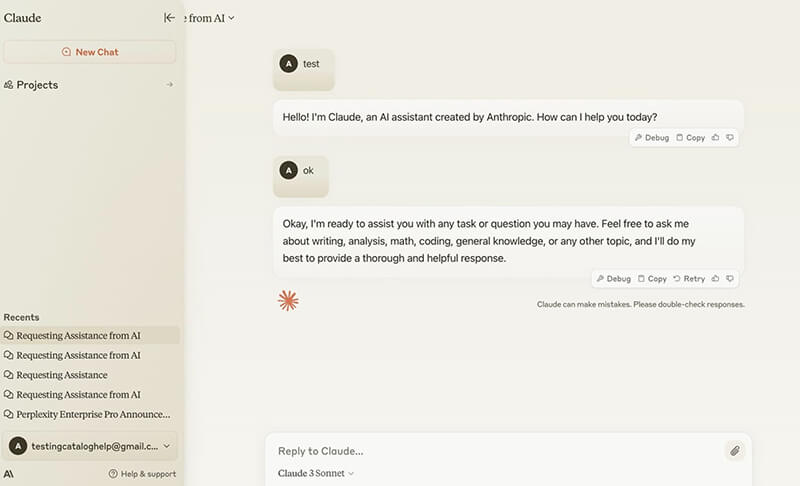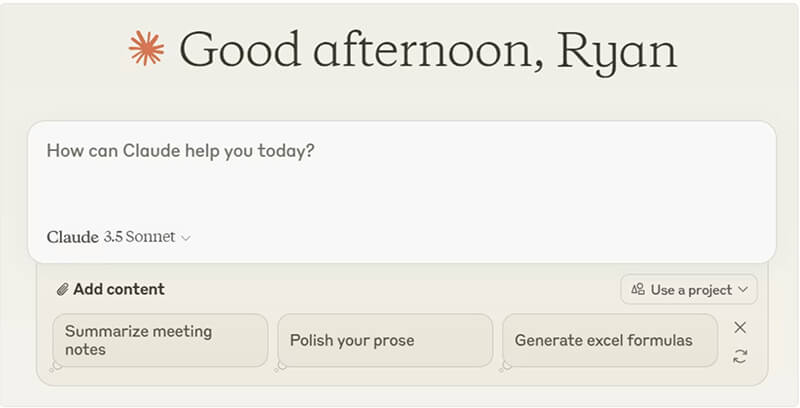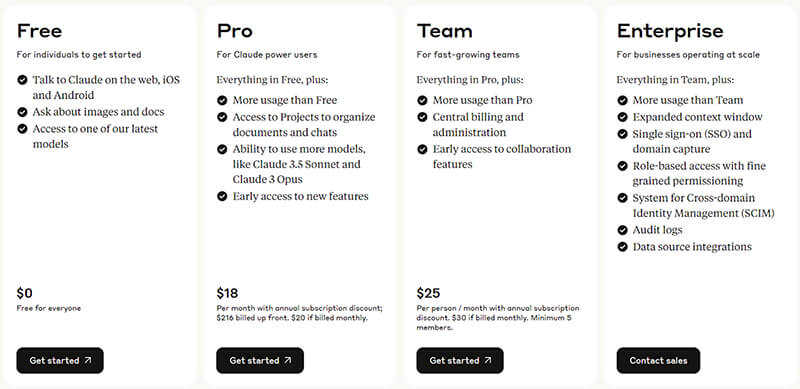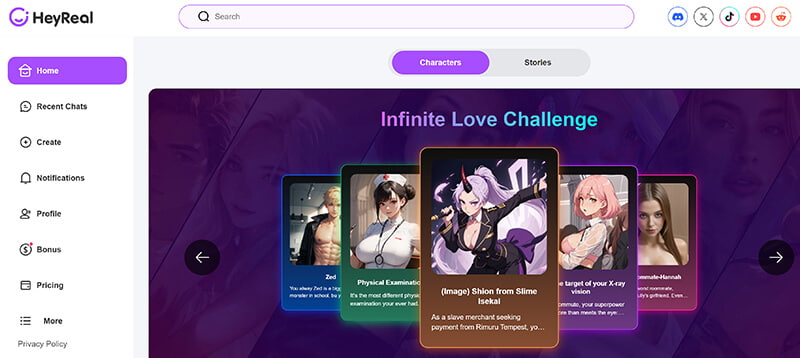Spotlight: AI chat, games like Retro, location changer, Roblox unblocked
Spotlight: AI chat, games like Retro, location changer, Roblox unblocked
As artificial intelligence continues to shape our world, one of the most fascinating developments has been the rise of large language models (LLMs) like Claude AI. Developed by Anthropic, Claude AI is positioned as one of the next big names in AI chatbots, alongside other powerful models like OpenAI’s ChatGPT. But what sets Claude AI apart from the competition, and is it really as groundbreaking as it seems?
In this review, I’ll take you on a deep dive into Claude AI, exploring its capabilities, strengths, weaknesses, and how it stacks up against other leading AI tools. Whether you're a developer, content creator, researcher, or just curious about the future of AI, this review will help you decide if Claude AI is the right fit for you.

Table of contents

To understand what Claude AI is, let’s first talk about large language models (LLMs) in general. LLMs are a type of artificial intelligence that’s designed to process and generate human-like text. These models are trained on massive datasets, allowing them to perform a wide variety of tasks, from writing essays and generating creative content to answering questions and coding.
LLMs have become central to AI development, driving innovations in numerous fields, from customer service chatbots to educational tools. But with great power comes great responsibility. The creators of LLMs face the challenge of ensuring that these models are not only powerful but also safe, ethical, and reliable.
Claude AI is the brainchild of Anthropic, an AI research company founded by ex-OpenAI employees. The company’s mission is to build AI systems that are aligned with human values, and that’s where Claude AI stands out. Unlike some other LLMs that may prioritize raw power or output, Anthropic’s development of Claude AI focuses on safety, reliability, and creating beneficial applications for users.
Claude AI was designed with a focus on reducing the risks associated with AI while still providing users with powerful tools for text generation, coding, and information retrieval. One of the primary goals is to make sure that the AI doesn’t generate harmful or misleading content and that it behaves in a way that aligns with human needs and ethics.
If you’ve used ChatGPT or other popular LLMs, you might be wondering how Claude AI compares. While both Claude AI and ChatGPT can handle similar tasks—like answering questions, generating text, and assisting with research—the two have notable differences.
For instance, Claude AI is known for its more nuanced approach to conversation, with a stronger focus on safety and content moderation. Anthropic’s development emphasis on reducing harmful AI behaviors has made Claude AI a more cautious chatbot, which may be a key consideration depending on your use case.
Claude AI is a versatile tool that can handle a range of tasks. Whether you’re a casual user or a developer, Claude AI has something to offer. Let’s break down some of the primary uses of this AI system.

One of Claude AI’s most prominent uses is as an online chatbot. If you're familiar with tools like ChatGPT, you’ll find that Claude AI can perform similar tasks, including answering questions, engaging in conversation, and providing advice on various topics.
However, Claude AI stands out in its ability to maintain safe and responsible conversations. While other chatbots can sometimes produce responses that may veer into problematic areas, Claude AI has built-in safeguards to mitigate this risk. Whether you’re chatting for fun or using it for work-related inquiries, Claude AI tends to maintain a balanced tone, prioritizing responsible dialogue.

Another strength of Claude AI is its ability to generate creative text. Whether you’re working on a blog post, a script, or even a novel, Claude AI can provide ideas, drafts, and entire sections of text. The AI's responses tend to be coherent and relatively high-quality, making it an excellent tool for brainstorming or overcoming writer’s block.
The quality of the text that Claude AI generates can be particularly impressive when it comes to writing long-form content. It maintains context throughout longer pieces, a feature that’s often a challenge for other models like ChatGPT, which may lose coherence over extended conversations or content.
For developers, Claude AI also offers capabilities in code generation. It can write and debug code in various programming languages, from Python to JavaScript. While it may not replace a professional developer anytime soon, it can definitely help accelerate the development process, especially for routine tasks or getting started on a new project.
The integration of coding features into Claude AI sets it apart from more general-purpose chatbots. If you're a developer looking to boost productivity or streamline your workflow, Claude AI might be a tool worth considering.
So, what’s it like to actually use Claude AI? Let’s take a closer look at the user experience and accessibility.
As of now, Claude AI is available in a limited beta. This means that it’s not yet universally accessible to the public. Anthropic has rolled out access to select users, including developers and businesses, but availability is still expanding.
The user interface (UI) is simple and intuitive. If you've used other LLMs like ChatGPT or ChatGPT alternatives, you'll find that the basic design is similar: a clean interface with an easy-to-use text input box. The simplicity is a big plus, especially for those who aren’t necessarily tech-savvy but want to take advantage of AI’s potential.

Currently, Claude AI is not free. Access is typically available via subscription or usage-based pricing models, and the details may vary depending on the level of access you require. For instance, developers may have different pricing compared to casual users, and larger enterprises may opt for enterprise-level access.
At the time of writing this review, Claude AI’s pricing structure is still evolving. However, if you’re interested in trying it out, you’ll likely need to sign up for a waitlist or gain access through an invitation.
After using Claude AI for a while, here’s what I’ve found to be its most significant strengths and weaknesses.
1. Safety features: One of the standout features of Claude AI is its emphasis on safety and ethical behavior. Unlike other LLMs that might occasionally produce harmful or biased content, Claude AI’s responses are designed to be more balanced and responsible.
1. Safety features: One of the standout features of Claude AI is its emphasis on safety and ethical behavior. Unlike other LLMs that might occasionally produce harmful or biased content, Claude AI’s responses are designed to be more balanced and responsible.
2. Text generation capabilities: When it comes to creating creative content, Claude AI excels. It generates coherent and quality text, and it’s great for brainstorming or expanding on initial ideas.
3. Versatility: From chat functionality to code generation, Claude AI offers a range of capabilities, making it a great tool for a variety of users, from developers to writers and researchers.
1. Limited access: Due to its beta status, Claude AI isn’t available to the public at large, and you may need to wait for an invitation or access approval.
2. Not always perfect for specialized tasks: While Claude AI is great for general conversations and creative writing, it’s not flawless when it comes to more niche or technical queries. It’s not always as accurate as a specialized tool for specific tasks.
3. Pricing: With a subscription-based model, Claude AI’s cost can be prohibitive for some users, especially those just looking for a simple AI assistant.
If you're debating whether Claude AI is the right tool for you, consider the following:
• Developers: Claude AI can significantly boost your productivity with its code generation and debugging capabilities.
• Writers: Whether you're generating blog posts, articles, or creative fiction, Claude AI’s text generation is impressive and reliable.
• Researchers: Claude AI’s ability to summarize and retrieve information can make it an excellent research companion.
When evaluating Claude AI, think about your needs, budget, and accessibility. If you’re just looking for a chatbot to ask casual questions, there are more affordable or free alternatives. But if you're looking for an advanced AI tool for more serious applications, Claude AI may be worth the investment.
If Claude AI doesn’t quite meet your needs, or if you’re looking for something different, HeyReal is another AI tool worth considering. Similar to Claude AI, HeyReal specializes in chatbot functions, but with its own unique set of features. When comparing the two, you’ll want to think about specific use cases, as Claude AI tends to offer more nuanced, safe interactions, while HeyReal may be better for high-volume customer service or marketing applications.

Who created Claude AI?
Claude AI was created by Anthropic, an AI research company founded by former OpenAI employees.
Is Claude AI free to use?
No, Claude AI is not free. It follows a subscription-based or usage-based pricing model. Is Claude AI down for maintenance?
To check if Claude AI is down, visit their official website or check relevant online forums for any announcements regarding maintenance.
How can I access and use Claude AI?
Claude AI is accessible through a limited beta. To gain access, you may need to sign up for a waitlist or receive an invitation from Anthropic. For more information, visit the official website, where you'll find detailed instructions on how to request access.
What is the price of Claude AI?
As of now, Claude AI’s pricing structure is subscription-based and may vary depending on your usage and access level. The exact pricing has not been fully disclosed, but it’s expected to follow a tiered model, where developers or enterprise users may face higher fees for advanced features, while casual users may have a more affordable option.
Conclusion: Should You Try Claude AI?
Claude AI offers a lot of potential with its focus on safety, accuracy, and creative text generation. Developed by Anthropic, it stands out by making sure its AI behaves ethically and responsibly. If you're looking for a chatbot or an AI tool for tasks like writing or coding, Claude AI is a solid choice.
However, it’s still in a limited beta, so access may not be immediate, and it isn’t free. You’ll need to be on a waitlist or pay for a subscription to use it. If you're okay with that, and you need an AI tool that focuses on both power and safety, Claude AI is definitely worth trying out.
In short, Claude AI is great if you need an advanced, responsible AI assistant, but its limited access and pricing could be a barrier for some.
Did you find this helpful?
476 Votes